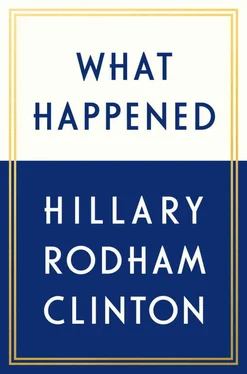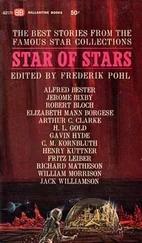Bill told me about a particularly troubling conversation he had with an old friend who lived up in the Ozarks of northern Arkansas. He had become an endangered species in Arkansas—a still-loyal, progressive Democrat. Bill called and asked our friend if he thought two-term Senator Mark Pryor could be reelected. Mark was a moderate Democrat with a golden name. (His father, David, was an Arkansas legend, having served as Congressman, Governor, and Senator.) Mark had voted for Obamacare because he believed everyone deserved the high-quality health care he received when he suffered from cancer as a young man. Our friend said he didn’t know, and he and Bill agreed the best way to find out was to visit a certain country store deep in the Ozarks where a couple hundred people regularly came out of the woods to buy food and talk politics.
When our friend got back, he called Bill and told him what the store owner had said: “You know, I always supported Clinton, and I like Mark Pryor a lot. He’s a good man and fair to everyone. But we’re going to give Congress to the Republicans.” The store owner was no fool. He knew the Republicans wouldn’t do anything for him and his neighbors. But he thought the Democrats hadn’t done anything, either. “And at least the Republicans won’t do anything to us,” he said. “The Democrats want to take away my gun and make me go to a gay wedding.”
Sure enough, Mark lost big on Election Day to Tom Cotton, one of the most right-wing members of Congress. It wasn’t that voters were turning away from the policies Mark and other Democrats had championed—in fact, in the same election, they passed an increase in the state’s minimum wage. But the politics of cultural identity and resentment were overwhelming evidence, reason, and personal experience. It seemed like “Brexit” had come to America even before the vote in the United Kingdom, and it didn’t bode well for 2016. Our party might have won the popular vote in five of the past six presidential elections, but the political landscape for the 2016 race was shaping up to be extremely challenging.
As if all this wasn’t enough to worry about, there was also the simple, inescapable fact that I was turning sixty-eight years old. If I ran and won, I would be the oldest President since Reagan. I suspected there’d be waves of rumor-mongering about my health—and everything else in my life. It would be invasive, crass, and insidious. But contrary to persistent rumors made up and spread by the right-wing media, my health was excellent. I had recovered fully from the concussion I suffered in late 2012. And the whole world could see I had no trouble keeping up a punishing travel schedule. I admired the likes of Diana Nyad, who at the age of sixty-four became the first person to swim from Cuba to Florida without a shark cage. When she finally emerged back on dry land, she offered three pieces of advice: Never ever give up. You’re never too old to chase your dreams. And even if something looks like a solitary sport, it’s a team effort. Words to live by!
Still, is this how I wanted to spend my time? Did I really want to put myself back in front of the firing squad of national politics for years on end, first in the campaign and then, hopefully, in the White House? Some of my dearest friends—including my longtime advisors and former chiefs of staff in the White House and the State Department, Maggie Williams and Cheryl Mills—told me I would be crazy to do it. Plenty of other people in my position had passed up the chance to run: everyone from General Colin Powell, to Mike Bloomberg, to New York Governor Mario Cuomo, who came so close to running, he had an airplane waiting on the tarmac to take him to New Hampshire when he finally decided “no.”
=====
So why did I do it?
I did it because when you clear away all the petty and not-so-petty reasons not to run—all the headaches, all the obstacles—what was left was something too important to pass up. It was a chance to do the most good I would ever be able to do. In just one day at the White House, you can get more done for more people than in months anywhere else. We had to build an economy that worked for everyone and an inclusive society that respected everyone. We had to take on serious national security threats. These were issues already on my mind all the time, and they would all require a strong, qualified President. I knew I would make the most of every minute. Once I started thinking about it that way, I couldn’t stop.
As it happened, the person who gave me the chance to serve as Secretary of State would once again play a decisive role.
A month after I left the State Department in 2013, Barack and Michelle invited Bill and me to join them for a private dinner in the White House residence. The four of us talked about our kids and the experience of raising them in the fishbowl of the White House. We discussed life after the Oval Office. Barack and Michelle mused about maybe one day moving to New York, just as we had done. That prospect still felt very far away. We all had high hopes for Barack’s second term. There was a lot of unfinished business, both at home and around the world. We ended up staying for hours, talking late into the night. If (back in the heated days of 2008) any of us could have gotten a glimpse of that evening, we wouldn’t have believed it.
Over the next year or so, the President and I kept in regular touch. He invited me back for lunch that summer, and the two of us sat out on the terrace outside the Oval Office eating jambalaya. I think he was just a tiny bit jealous of my newfound freedom, which was a good reminder of how all-consuming the job is. We had lunch again the following spring. Some of the time the President and I talked about work, especially the foreign policy challenges he was facing in the second term. But gradually, as 2013 turned into 2014, our conversations turned more frequently to politics.
President Obama knew the challenges facing Democrats. He never took his reelection for granted, and while it was a resounding win in 2012 (the legitimately resounding kind), he knew that his legacy depended to a large degree on a Democratic victory in 2016. He made it clear that he believed that I was our party’s best chance to hold the White House and keep our progress going, and he wanted me to move quickly to prepare to run. I knew President Obama thought the world of his Vice President, Joe Biden, and was close to some other potential candidates, so his vote of confidence meant a great deal to me. We had our differences in both style and substance, but overwhelmingly we shared the same values and policy goals. We both saw ourselves as pragmatic progressives trying to move the country forward in the face of implacable opposition from a Republican Party that had been taken over by the radical-conservative Tea Party fringe and was in thrall to its billionaire backers. I shared the President’s sense of urgency about how much was at stake in 2016, but I still wasn’t entirely sold that running was the right decision for me.
As I had found when he insisted that I become Secretary of State and literally wouldn’t take no for an answer, President Obama is a persuasive and persistent advocate. In the summer of 2013, David Plouffe, Obama’s former campaign manager who engineered my defeat in 2008, offered to provide any help and advice he could as I planned my next steps after leaving the State Department. I invited him over to my house in Washington, and quickly saw why the President had leaned on him so much. He really knew his stuff. We met again in September 2014, when he visited my house once more to give me a presentation about what it would take to build a winning presidential campaign. He spoke in detail about strategy, data, personnel, and timing. I listened carefully, determined that if I did jump into the race, I would avoid the mistakes that had dogged me the last time. Plouffe emphasized that time was of the essence, as hard as that was to believe more than two years before the election. In fact, he said I was late already and urged me to get started. He was right.
Читать дальше












